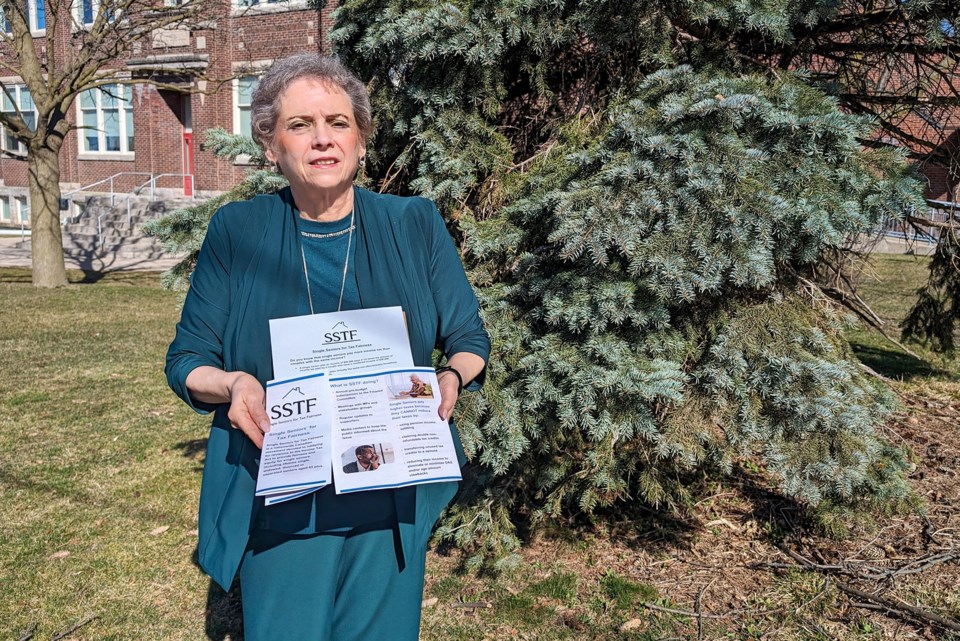When tax time rolls around, it’s a fair assumption to make that most people don’t enjoy the hassle. However, the advocacy group Single Seniors for Tax Fairness (SSTF) says there’s extra frustration for single taxpayers.
Thorold’s Jean D'Amelio-Swyer, an advocate for seniors and SSTF member, said Canadians who are married or in a common-law relationship have access to advantages at tax time that single individuals do not.
“There are two big areas of concern. The unfair Income Tax Act to single seniors and the inability for single seniors to transfer RRSPs and RRIF assets to a beneficiary of choice without significant taxation.”
Couples can use income splitting and each claim non-refundable tax credits such as personal, age and pension income amounts and can transfer unused tax credits to their partners to reduce their net and taxable income. This reduces the income tax they pay as well as minimizes or eliminates the clawback of Old Age Security (OAS) and the age amount non-refundable tax credit.
“As an example, if a senior couple’s combined income is $50,000, they’ll pay about $1,172 in combined taxes, while a senior who makes the same income of $50,000 pays $6,521 in income taxes,” D'Amelio-Swyer said. “That is more than five times as much.”
Another disadvantage for single individuals is what happens when they die and have money in a registered retirement savings plan or a registered retirement income fund.
“Upon the death of a spouse, RRSPs and RIFs can be transferred to the surviving spouse so tax won’t be paid until it’s drawn out,” D'Amelio-Swyer said. “However, on the death of a single senior, the proceeds of the RRSP and other registered plans are taxed at income time in the year of the death and this reduces the amount a loved one gets. In some cases it’s taxed up to 50 percent.”
SSTF Director, Elizabeth Brown said it isn’t just single seniors who are impacted at tax time. It’s Canadians who have remained single their entire lives, become divorced, or their spouses have died.
“We’ve heard from many people who have lost a spouse and are just shocked at how much their taxes go up when their expenses really haven’t changed that much. Their taxes go up but they don’t get more in government services,” Brown said.“This is why we’re advocating for change. We’ve got over 850 supporters from across the country and we’re doing our best to keep adding more people.”
The issue doesn’t only affect single seniors, it has an impact on all single individuals, including women. Brown came of age in the 1970s during the start of the modern women’s movement and said she learned women could do anything they wanted in terms of accessing education and becoming a successful person.
“I got a job that allowed me to do well financially and I thought if I meet a partner, that’s great, But, if not, I could look after myself and yet when it comes to tax time, the government tells me, ‘Oh, you should have gotten married little lady,’” she said. "It’s not just low-income seniors we need to think about. We need to think about seniors in general.”
According to Statistics Canada, the percentage of people in country who are single and never married has been increasing over the years. In 1981, about 33 percent of the population aged 15 and over was single. By 2016, that percentage had risen to about 45 percent of the population aged 15 and over.
With more single people impacted, Brown encourages the public to check out the SSTF website to learn more and support the call for changes to the Income Tax Act to make it fair for everyone.
If individuals wish to write to their local MPs about the issue a template letter is available online. It can be downloaded from the SSTF website.
SSTF has several recommendations for the federal government, which include implementing a tax provision for single seniors to offset the considerable reduction in tax that couples have when applying for pension income splitting. The group is also advocating for a new single senior non-refundable tax credit equivalent to half of the personal amount for the applicable taxation year, along with increasing the pension income amount from $2,000 to $3,000 for single seniors.
SSTF is calling for an increase in the income clawback thresholds for Old Age Security and for the age amount non-refundable tax credit for single seniors.
SSTF is also calling on the government to change the tax treatment of registered plan proceeds on the death of a single senior to allow a tax-deferred rollover to any beneficiary, regardless of relationship to the deceased, with the proviso that the proceeds be paid out, and taxable to that beneficiary, over a maximum of 10 years. If the beneficiary dies before that period, the balance would be fully taxable in the year of death of that beneficiary.
D'Amelio-Swyer said everyone deserves fairness and equality. That's what SSTF is advocating for the federal government to provide to Canadians.
“We’re not advocating for changes for couples. We’re looking for a fair tax system for singles. We want to make that very clear.”
For more information about SSTF visit www.singleseniorsfortaxfairness.com
